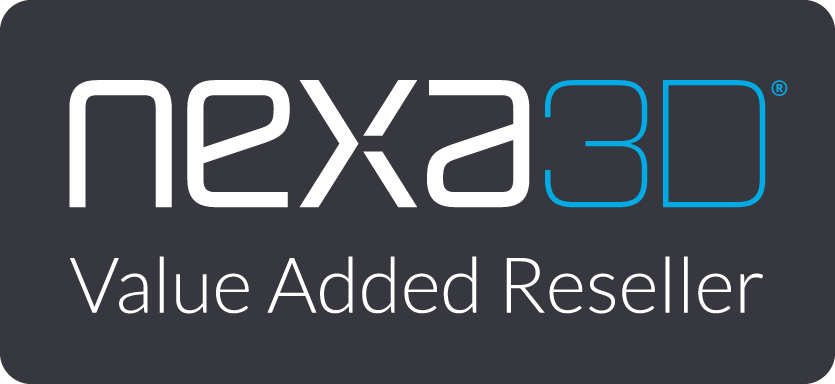From CAD to ready-to-use part in 48 hours: PepsiCo reduces mold costs and cycle times with the help of NXE 400
PepsiCo worked with Nexa3D partner Dynamism to validate the NXE 400 and xPEEK147 material as ideal for their blow molding application where speed and durability are critical.

PepsiCo brand finds the best alternative to expensive, time-consuming conventional metal tooling
PepsiCo products are enjoyed by consumers more than one billion times a day in more than 200 countries and territories around the world. PepsiCo generated net sales of more than $79 billion in 2021, driven by a portfolio of beverages and prepared foods that includes Lay’s, Doritos, Cheetos, Gatorade, Pepsi-Cola, Mountain Dew, Quaker and SodaStream. PepsiCo’s product portfolio includes a wide range of indulgent foods and beverages, including many iconic brands, each with estimated annual retail sales of more than $1 billion.

The challenge
Speed to market has never been more important in the consumer goods industry as brand owners strive to develop new bottle and packaging designs to meet ever-changing consumer demands. However, the production of conventional metal tools for blow molding bottles is an expensive and time-consuming undertaking. Once a CAD file of the packaging design is created, it can take up to four weeks for a metal tool to be produced, and then another two weeks for a sample unit to be available for the actual blow molding. According to Max Rodriguez, Senior Manager of Global Packaging R&D, Advanced Engineering and Design, at PepsiCo’s Valhalla Research Center, a single metal tool set can easily cost up to $10,000 to produce, depending on its complexity.
This has led many to use 3D printing to shorten this process, but previous rapid tooling approaches also had their shortcomings. It took two to three days to print a single blow mold tool from Digital ABS (an expensive material) on a $250,000 PolyJet 3D printing machine. However, the mold was not very durable and could only produce about 100 bottles before the mold failed. This prompted Rodriguez and his team to investigate a hybrid approach that combines parts of a conventional metal mold with 3D-printed inserts.
“Time and cost are obviously important, but even more important is having the flexibility to go through a number of different design iterations at a record pace so that we can evaluate performance in all downstream activities. This is what really helps us to accelerate packaging design and development.
Max Rodriguez, Senior Manager for Global Packaging
R&D, High Technology and Design, PepsiCo

Customer
PepsiCo Inc.
Industry
Consumer goods packaging, food and beverages
Products
- Nexa3D NXE 400 printer
- xPEEK147 by Henkel Loctite
Application
Using its patented technology and a hybrid approach, PepsiCo uses additive manufacturing as an enabler for various aspects of bottle development – to accelerate and improve performance simulation, advanced system analysis and the production of high-quality, functional prototypes.
Advantages
- Reduction of the development time for prototype tools from 4 weeks to 48 hours
- Reduce prototype tooling costs from $10,000 to $350 per mold set
- Creation of durable molds that can produce more than 10,000 bottles per mold
- Enables multiple design iterations to allow timely review of downstream activities


Benefit
More than 10,000 bottles with 96% cost reduction
PepsiCo chose Nexa3D’s xPEEK147 from Henkel Loctite for the 3D printed mold inserts due to the material’s strength and impressive performance factors, including its very high heat deflection temperature. This hybrid approach is machine-independent, i.e. different types of 3D printers can be used. PepsiCo has found that the ultra-fast, high-throughput Nexa3D NXE 400 3D printer and its associated material performance are ideal for producing the molded components it needs.
A complete set of molds can be produced in 12 hours, with 8 hours required for 3D printing and 4 hours for curing. These hybrid molds can then be successfully used for more than 10,000 bottles before they fail – at a cost reduction of up to 96% compared to conventional metal molds.


